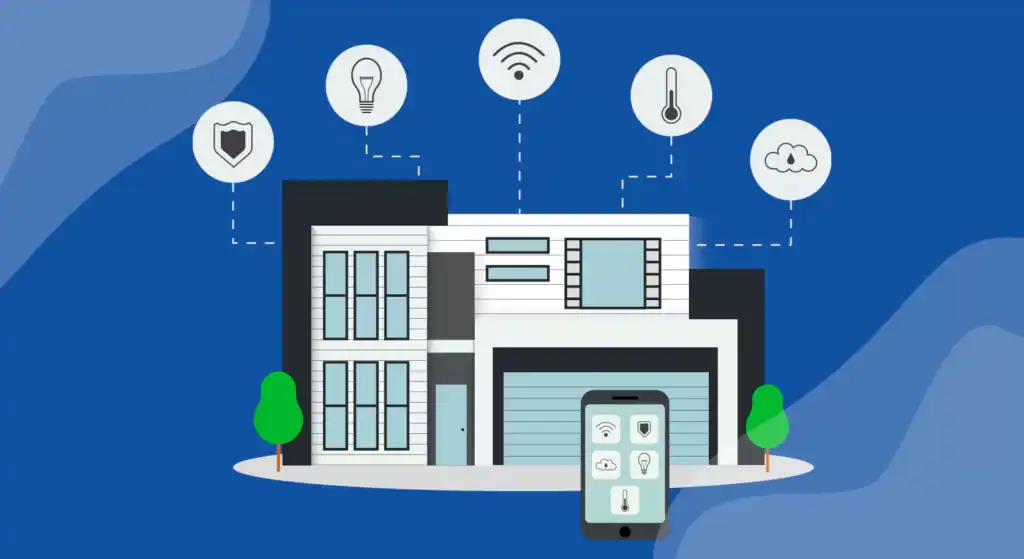In the digital age of real estate, data is more valuable than ever. Multiple Listing Services (MLSs)—the databases real estate professionals use to share information about properties—contain a goldmine of structured, real-time property data. As the industry continues to shift towards digital experiences, monetizing MLS data through Application Programming Interfaces (APIs) presents both a lucrative opportunity and a technical challenge for real estate stakeholders.
What Is MLS Data?
MLS data encompasses comprehensive real estate information such as property listings, prices, historical sales, square footage, neighborhood demographics, days on market, and more. It’s a dynamic and up-to-date dataset that fuels everything from real estate websites like Zillow and Redfin to automated valuation models (AVMs) and customer relationship management (CRM) tools used by agents.
Traditionally, access to this data has been tightly controlled. Agents and brokers pay for access, and licensing is often restricted to protect data integrity and ensure compliance with industry rules. However, with advancements in API technologies and increasing demand for integration and automation, MLS organizations are beginning to explore how to offer and monetize this data through APIs.
The Role of APIs in Real Estate
APIs are tools that allow different software applications to communicate and share data seamlessly. In real estate, APIs enable developers to access MLS data in real time, integrate it into websites, mobile apps, CRM platforms, market analytics tools, and more.
Key benefits of APIs include:
-
Efficiency: Automates the data delivery process and reduces manual entry.
-
Customization: Allows developers to tailor data presentations for different use cases.
-
Scalability: Supports numerous applications across different platforms.
-
Real-time Access: Ensures users always have up-to-date listings and market information.
Models for Monetizing MLS Data
Monetizing MLS data through APIs requires a business model that balances open access with profitability, security, and compliance. Here are the most common monetization approaches:
Subscription-Based Access
This model charges users—typically proptech firms, developers, or brokers—a recurring fee based on data access level. Tiers may include:
-
Basic Tier: Limited property data, historical info, and updates.
-
Premium Tier: Full listing data, analytics, market trends, and support.
-
Enterprise Tier: Custom licensing, bulk data, and SLA guarantees.
Pay-Per-Call or Usage-Based Pricing
This structure charges fees based on the number of API requests (or “calls”). It works well for platforms that vary in usage volume, such as seasonal apps or new startups.
-
Example: $0.01 per API call, or packages like 10,000 calls for $100/month.
Freemium Model
Basic data access is provided for free to encourage adoption. Premium features like advanced filters, analytics, or geographic access are offered as paid upgrades.
Data Licensing Partnerships
MLSs can form strategic partnerships with large-scale real estate platforms or analytics firms, offering data through custom APIs in exchange for licensing fees or revenue-sharing agreements.
White-Labeled Solutions
MLS organizations or third parties can offer white-labeled platforms with embedded APIs. This lets agencies or developers brand and resell the services under their own umbrella.
Technical Considerations
When developing API-driven monetization strategies, robust technical infrastructure is essential. Key considerations include:
-
Authentication & Access Control: Secure access via OAuth2 or API keys to prevent unauthorized use.
-
Rate Limiting: Prevent abuse by limiting how often users can call the API.
-
Data Normalization: MLSs often use different formats—standardizing data (e.g., using RESO Web API standards) makes APIs easier to adopt.
-
Documentation & Developer Tools: Clear, well-maintained API docs and sandbox environments enhance developer experience and increase adoption.
-
Reliability & Uptime: SLAs should guarantee data availability for high-dependence use cases.
Challenges and Compliance
Despite the potential, monetizing MLS data through APIs is not without challenges:
Data Ownership and Privacy
MLSs must navigate who owns the data—brokers, agents, or the MLS itself—and what can be legally shared or sold. Compliance with state laws and industry rules (e.g., NAR policies) is essential.
Fragmentation Across MLS Systems
With hundreds of MLSs across the U.S., data fragmentation is a barrier. APIs help unify access, but significant investment in standardization (e.g., RESO Data Dictionary) is often required.
Competitive Dynamics
Some real estate tech companies are both API consumers and competitors. MLSs must define rules to protect their data while enabling innovation.
Integration Complexity
Developers must work with legacy systems and varied data formats. Offering SDKs, support, and technical guidance is essential for adoption.
Benefits of API Monetization for MLS Organizations
Despite these challenges, the rewards can be substantial:
-
New Revenue Streams: APIs create recurring, scalable income beyond traditional memberships.
-
Innovation Enablement: APIs foster a broader ecosystem of proptech tools, benefiting end users and agents.
-
Market Relevance: In a world increasingly reliant on data-driven decisions, MLSs stay competitive by offering modern access methods.
-
Operational Efficiency: APIs reduce data requests and support needs by enabling self-service access.
Case Studies
-
Bridge Interactive (Zillow Group): Offers a RESO-compliant API platform used by several MLSs to streamline data access for brokers and vendors.
-
MLS Grid: A collaborative initiative of multiple MLSs to offer unified, standardized API access, simplifying licensing and integration.
-
CoreLogic Trestle: Offers data distribution via a centralized platform with API monetization and data compliance tools built in.
The Future of MLS APIs
As the industry matures, we can expect:
-
Wider adoption of open standards (e.g., RESO Web API).
-
Enhanced API marketplaces, where multiple data types and providers can be accessed via unified portals.
-
Growth in AI/ML applications powered by standardized property data delivered via APIs.
-
Increased automation in transactions and digital workflows built around MLS data integrations.
Conclusion
Monetizing MLS data through APIs represents a transformational opportunity for the real estate industry. While technical, legal, and organizational hurdles remain, the potential to unlock new revenue, support innovation, and deliver value across the ecosystem is undeniable. MLS organizations that invest in API infrastructure, compliance, and developer support today will be best positioned to lead in tomorrow’s data-driven market.
Frequently Asked Questions
What is MLS data, and why is it valuable in the real estate industry?
MLS (Multiple Listing Service) data refers to the comprehensive information collected and maintained by real estate professionals about properties for sale or rent. It includes data such as property addresses, prices, descriptions, square footage, days on market, photos, and historical transactions. This data is valuable because it is:
-
Authoritative and up-to-date, directly sourced from agents and brokers.
-
Comprehensive, covering listings that may not appear on public sites.
-
Standardized, making it easier for agents, apps, and platforms to process and analyze.
-
Used across the industry, powering everything from online listings to valuation models and CRM tools.
By providing accurate and timely property data, MLS systems enable transparency, efficiency, and trust in real estate transactions.
How can APIs be used to monetize MLS data?
APIs (Application Programming Interfaces) serve as the bridge between MLS databases and third-party software, enabling controlled access to real-time data. Monetization through APIs happens by packaging MLS data into digital services and charging for access in various ways:
-
Subscription-Based: Monthly or yearly fees for different data tiers.
-
Usage-Based: Charging per API call or based on data volume.
-
Freemium Model: Offering basic access for free while charging for premium features.
-
Licensing Deals: Partnering with large platforms for bulk data licensing.
-
White-Label Solutions: Selling branded API platforms to brokerages or tech firms.
This allows MLS organizations to generate recurring revenue while enabling a broader range of real estate applications.
What are the technical considerations in building a monetizable MLS API?
Several technical elements must be addressed to ensure successful API delivery and monetization:
-
Authentication: Secure access with OAuth2, tokens, or API keys to prevent unauthorized use.
-
Rate Limiting: Control over how frequently a user can query the API to prevent system overload.
-
Data Standardization: Aligning data with RESO (Real Estate Standards Organization) standards for consistency and compatibility.
-
Developer Experience: Good documentation, testing environments (sandbox), and SDKs for easier integration.
-
Scalability: Infrastructure must handle varying levels of demand from multiple users.
-
Reliability: High uptime with monitoring, redundancy, and support for mission-critical applications.
These factors ensure the API is secure, developer-friendly, and scalable enough to support revenue-generating use cases.













